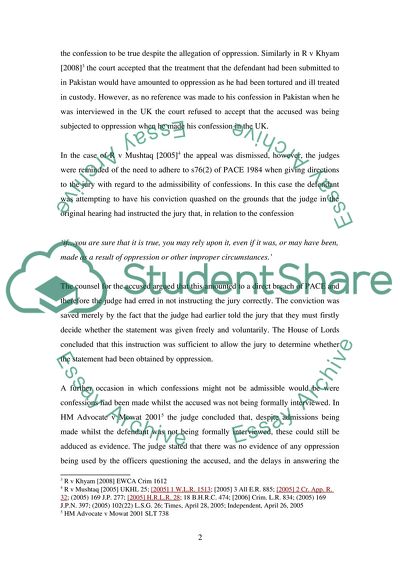Cite this document
(The Law on the Admissibility of Confession Evidence Term Paper - 1, n.d.)
The Law on the Admissibility of Confession Evidence Term Paper - 1. Retrieved from https://studentshare.org/law/1722569-law-of-evidence
The Law on the Admissibility of Confession Evidence Term Paper - 1. Retrieved from https://studentshare.org/law/1722569-law-of-evidence
(The Law on the Admissibility of Confession Evidence Term Paper - 1)
The Law on the Admissibility of Confession Evidence Term Paper - 1. https://studentshare.org/law/1722569-law-of-evidence.
The Law on the Admissibility of Confession Evidence Term Paper - 1. https://studentshare.org/law/1722569-law-of-evidence.
“The Law on the Admissibility of Confession Evidence Term Paper - 1”. https://studentshare.org/law/1722569-law-of-evidence.


